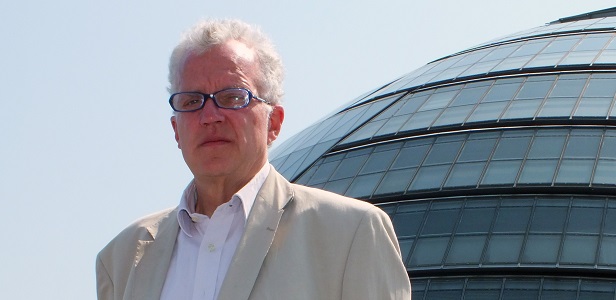Whenever there is a train accident, the newshounds in the media are quick to bay at the railways. Given the industry’s safety record, the criticism levied at the railways whenever something goes wrong is disproportionate to its record.
However, this time, after the Lambrigg crash, it was different and the hounds largely failed to bark. The media treatment largely focussed on the ‘miracle’ escape of so many passengers and on the ability of the trains to have withstood the impact. There was none of the damaging coverage that resulted from previous accidents such as Ladbroke Grove or Hatfield.
There were both sensible and daft reasons for the relatively good coverage. In terms of the first, this was the first accident in five years caused by an industry error and that excellent record ensured that TV presenters trying to say ‘yet another rail accident’ could not sustain that line of argument. The trains, too, are clearly built to a much higher standard than older ones and this was appreciated by the media, though there was a failure to recognise that it was more through good engineering and tight regulations than ‘luck’
The daft reason was that Richard Branson managed to diffuse a lot of criticism by talking about the ‘hero’ driver who, while clearly managed to apply the brakes quickly, was pretty powerless to do much else. Amazingly, several journalists who have clearly never been near the cab of a train, were gullible enough to suggest the chap helped steer the train to safety and there was much mention of the ‘hero’ driver in the ensuring coverage. Branson did, too, try to exploit the situation by suggesting that Virgin might look after the track better than Network Rail.
The story that the media missed somewhat, however, is one that is rather embarrassing for those of us – like me – who argued strongly that the maintenance should be done in house by Network Rail. After the Potters Bar train crash where contractors Jarvis appeared to have been responsible for shoddy work on the points that caused the accident, and the replacement of Railtrack by Network Rail, maintenance was taken back in house. It was a decision that made sense both commercially, since NR reckons it saves more than £50m per year, and practically, since maintenance is a core task of a railway infrastructure company which clearly should be undertaken by directly employed staff.
The Lambrigg accident demonstrates, though, that while taking the work in house may well have been sensible and correct for several reasons, it does not solve all the problems. The people who maintained those point were, in all likelihood, employed by Network Rail. At least, if that is the case, then it will be easier to track them down and find out precisely what happened, something that the police were never able to do at Potters Bar because of obstruction by Jarvis but nevertheless it does suggest that something is amiss within Network Rail
Network Rail clearly has to ensure that it has the right procedures in place. It may be that the disruption of the past decade, in which the maintenance has been outsourced and brought back in house, was a contributory cause of the accident, but that is no excuse for what happened. Someone must have known those points were in a bad condition and that a stretcher bar was missing while no speed limit had been imposed, and yet went to bed with a clear conscience.
Network Rail, too, has cause for deep self-examination. Something went wrong very badly at Lambrigg and it was in the basic task of maintaining a safe infrastructure. Network Rail is no longer a new organisation, as it is approaching its 5th anniversary, and yet there are still doubts about whether it has managed to overcome its dysfunctional legacy from Railtrack in establishing a safe and efficient way of running the railway. This accident suggests it still has a way to go and, interestingly, came just as the Office of Rail Regulation was announcing its preliminary suggestions for the budget for the years 2009-14.
There is no doubt that whatever the final figure, Network Rail will have to make considerable efficiency savings and operate a much cheaper railway than it is currently doing without compromising safety. This should not be difficult. It is still spending far more than British Rail ever did and everyone in the industry – from trackworkers to managing directors – has tales of money being wasted in all kinds of ways.
Inevitably, cutbacks will lead to concerns about safety but the unions should be wary of sounding warnings which attract headlines all too easily. Look, for example, at the daft story in early March about the use of second hand parts on the network which has the effect of suggesting railways are dangerous. Having an inefficient railway, which is therefore more expensive than it needs to be, is in no one’s interests. Taxpayers’ money is wasted and high fares will deter users which, in turn, could mean fewer jobs for the railways. Moreover, crying wolf too many times will mask the occasions when the management is really making a mistake and the public should be genuinely concerned.
However, there are times when the alarm must be sounded. The unions and their members have an important role to play in ensuring that we have a safe railway but they must exercise that responsibility with care so that their warnings are heeded. Overall, it is in everyone’s interests to point out that the railways, despite this accident, are the safest form of transport and will remain so.
Christian Wolmar’s book on rail privatisation, On the Wrong Line, how ideology and incompetence wrecked Britain’s railways, is published by Aurum, £10 99. see www.christianwolmar.co.uk for details
